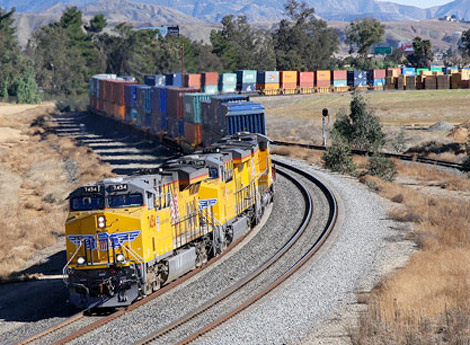The first ever direct freight train service from China to London has arrived in Barking after a 17-day journey through eight countries distancing a total of 7,456 miles.
Reviving the ancient trading Silk Road route, the train passed through China, Kazakhstan, Russia, Belarus, Poland, Germany, Belgium and France before crossing the Channel and arriving in east London at Barking rail freight terminal.
Operated by Yiwu Timex Industrial Investments, the freight train arrived carrying 34 containers packed with £4 million worth of clothes and other goods.
“It’s a new economic geography,” said Prof Magnus Marsden, an anthropologist at Sussex University’s School of Global Studies. “This is the first train to the UK, but very much part of a new type of commercial route. The commodities are small. It’s not the big corporates who will be using this train, so it’s very much in the tradition of the Silk Road, giving opportunities for those who are in fact the inheritors of those ancient traders today.”
China’s President Xi Jinping has high hopes for the train, and what it will do for UK-China relations as well as trade.
“This will be a great undertaking benefiting the people of all countries along the route.” he said in a 2013 speech where he first outlined his vision for the train.
Alistair Lindsay, Tesco’s (LON:TSCO) head of global logistics, was positive about the train for the supermarket, saying that while Tesco prefers shipping its goods “where we need to move products quicker we have that option to do it by rail”.
“For us a service which is quicker than sea and cheaper than air is a great middle ground.” said the chief executive of Brand Avenue.
“The new service has a very quick transit time,” operations director, Mike White, told the Railway Gazette. “We believe this is going to change the way a lot of forwarders and shippers view their imports and exports for China.”

